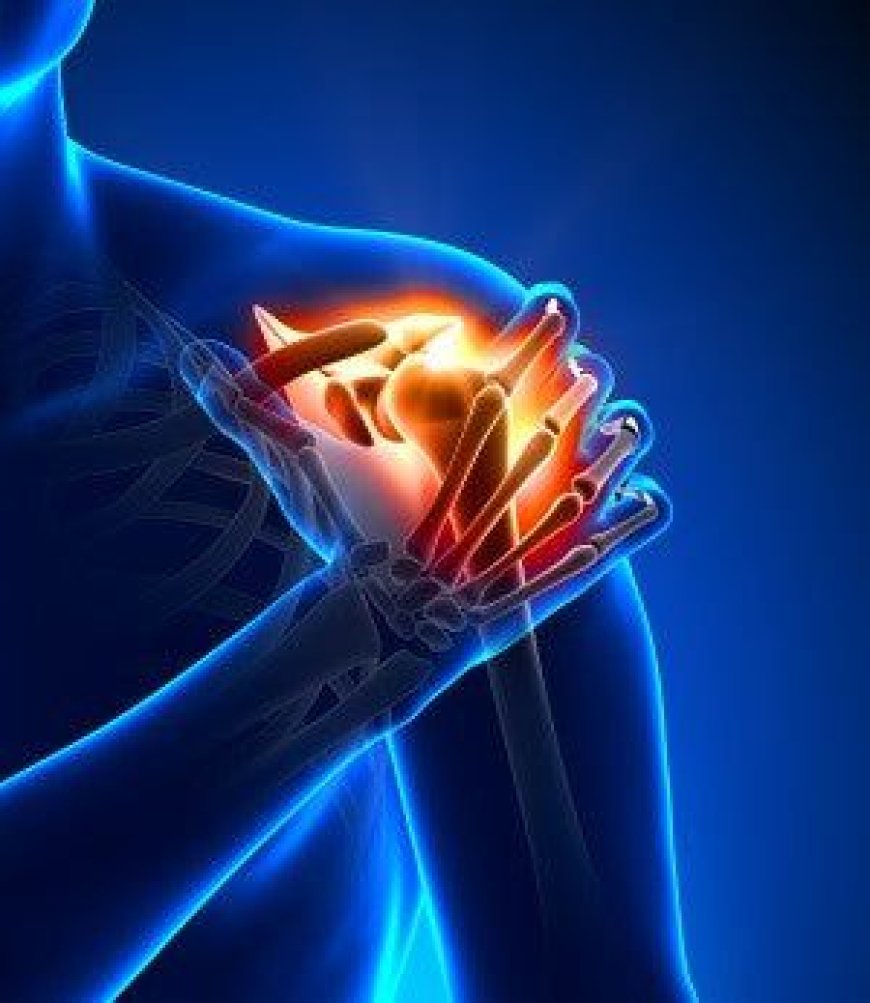The Mind-Body Connection How Stress and Anxiety Influence Pain Perception
The intricate relationship between the mind and body has been a subject of fascination and study for centuries.

The intricate relationship between the mind and body has been a subject of fascination and study for centuries. The connection between our mental states and physical sensations is undeniable, particularly when it comes to pain. Pain is not merely a physical experience but is profoundly influenced by psychological factors, including stress and anxiety. Understanding how stress and anxiety affect pain perception is crucial for developing comprehensive approaches to pain management and improving overall well-being.
The Biological Basis of Pain Perception
Pain perception is a complex process that involves the nervous system, which detects and transmits pain signals, and the brain, which interprets these signals. When we experience an injury or illness Pain Treatment receptors (nociceptors) in the affected area send signals through the spinal cord to the brain. The brain then processes these signals and generates the sensation of pain. This process, known as nociception, is influenced by various factors, including emotional and psychological states.
The Role of Stress in Pain Perception
Stress is the body’s response to any demand or threat, whether real or perceived. It triggers a cascade of physiological responses, including the release of stress hormones like cortisol and adrenaline. While these responses are designed to protect the body in the short term, chronic stress can have detrimental effects on health, including pain perception.
Stress and the Nervous System
Chronic stress sensitizes the nervous system, making it more responsive to pain signals. This heightened sensitivity can lower the pain threshold, meaning that stimuli which might not typically cause pain can become painful. Stress can also exacerbate existing pain conditions by increasing inflammation and muscle tension, both of which contribute to pain.
The Psychological Impact of Stress
Stress affects not only the physiological aspects of pain but also its psychological components. It can increase feelings of anxiety and depression, which in turn can amplify the perception of pain. People under chronic stress often report higher levels of pain and discomfort, even when there is no apparent physical cause.
Anxiety and Pain Perception
Anxiety, characterized by excessive worry and fear, is another significant factor influencing pain perception. Like stress, anxiety triggers physiological changes that can affect how pain is experienced.
The Fight-or-Flight Response
Anxiety activates the body's fight-or-flight response, a survival mechanism that prepares the body to deal with threats. This response involves the release of adrenaline, increased heart rate, and heightened alertness. While beneficial in acute situations, chronic activation of this response can lead to a state of hyperarousal, where the nervous system remains on high alert. This heightened state can make individuals more sensitive to pain and increase the intensity of pain experiences.
Catastrophizing and Pain
Anxiety often leads to catastrophizing, a cognitive distortion where individuals expect or believe that the worst will happen. In the context of pain, catastrophizing can lead to an exaggerated perception of pain and increased distress. People who catastrophize about pain are more likely to focus on it intensely, perceive it as more severe, and feel less capable of coping with it. This negative thought pattern can create a vicious cycle, where anxiety increases pain perception, which in turn increases anxiety.
The Interplay Between Stress, Anxiety, and Pain
Stress and anxiety are often interrelated, and their combined effects can significantly influence pain perception. Both conditions can lead to hypervigilance, where individuals become overly focused on bodily sensations and more likely to perceive normal bodily functions as painful. This heightened awareness can create a feedback loop, where the anticipation of pain increases anxiety and stress, which then exacerbates the pain.
Psychological Interventions for Managing Pain
Given the profound impact of stress and anxiety on pain perception, psychological interventions are crucial components of pain management. These interventions aim to reduce stress and anxiety, thereby lowering the perceived intensity of pain and improving the quality of life.
Cognitive-Behavioral Therapy (CBT)
Cognitive-behavioral therapy (CBT) is a well-established psychological intervention that helps individuals identify and change negative thought patterns and behaviors. For pain management, CBT focuses on altering the maladaptive thoughts and beliefs related to pain, such as catastrophizing. By changing these thought patterns, individuals can reduce their anxiety and stress, leading to a decreased perception of pain.
Mindfulness and Relaxation Techniques
Mindfulness practices, such as meditation and deep-breathing exercises, can help individuals manage stress and anxiety by promoting relaxation and reducing physiological arousal. These techniques encourage a non-judgmental awareness of the present moment, which can help individuals detach from their pain and reduce the emotional response to it. Regular mindfulness practice has been shown to reduce pain intensity and improve coping mechanisms.
Biofeedback
Biofeedback is a technique that teaches individuals to control physiological processes, such as heart rate and muscle tension, through real-time feedback. By learning to control these processes, individuals can reduce their physiological arousal and muscle tension, which are often heightened by stress and anxiety. This reduction in physiological arousal can lead to a decreased perception of pain.
The Importance of a Holistic Approach
Managing pain effectively requires a holistic approach that addresses both the physical and psychological aspects of pain. This approach involves a combination of medical treatments, such as medications and physical therapy, and psychological interventions. By addressing the mind-body connection, healthcare providers can offer more comprehensive and effective pain management strategies.
Integrative Medicine
Integrative medicine combines conventional medical treatments with complementary therapies, such as acupuncture, yoga, and massage therapy. These therapies can help reduce stress and anxiety, thereby decreasing pain perception. Integrative medicine recognizes the importance of treating the whole person, not just the symptoms, and aims to enhance overall well-being.
Patient Education and Support
Educating patients about the mind-body connection and the role of stress and anxiety in pain perception is crucial for Effective Pain Management. When patients understand how their mental states influence their pain, they are more likely to engage in psychological interventions and self-care practices. Support groups and counseling can also provide emotional support and practical strategies for managing stress and anxiety.
Conclusion
The mind-body link is essential to understanding how pain is felt, and stress and worry have a big impact on this. Gaining an understanding of this relationship is crucial to creating pain management plans that effectively treat the psychological as well as the physical aspects of pain. Healthcare professionals can assist patients manage their pain and improve their overall well-being by implementing psychological interventions like CBT, mindfulness, and biofeedback into their pain management programs. This can help patients feel less stressed and anxious. Achieving long-lasting pain treatment requires adopting a holistic strategy that treats the patient as a whole rather than simply their symptoms.
What's Your Reaction?

























